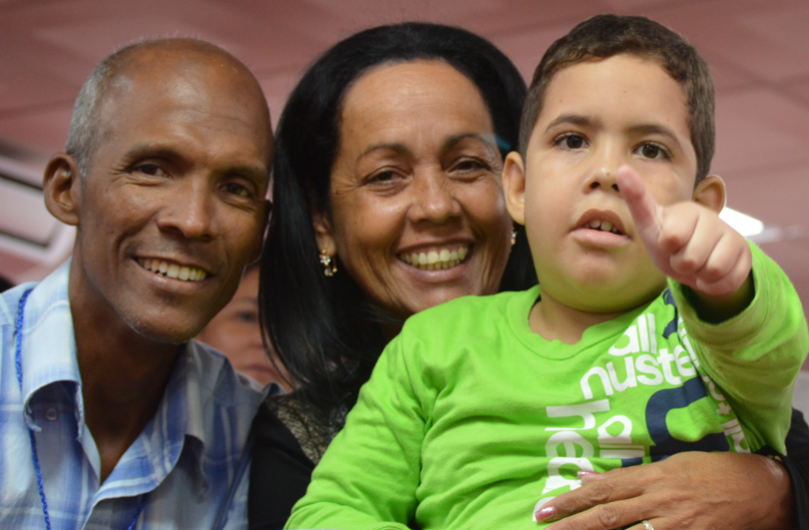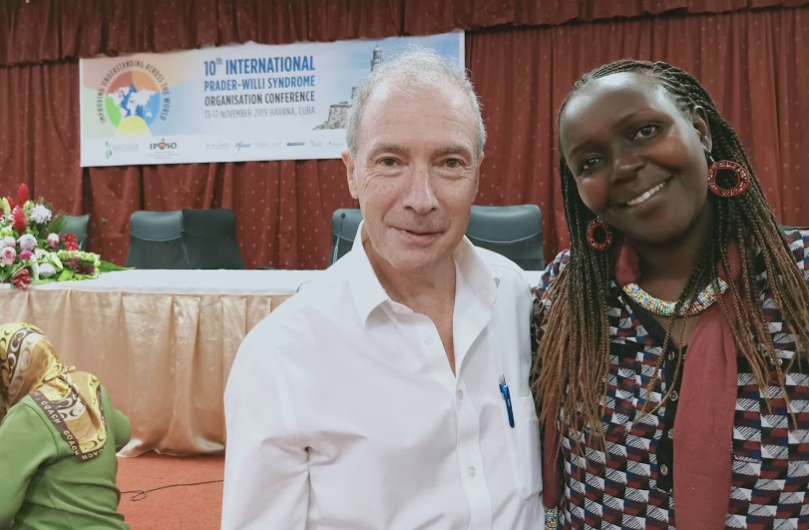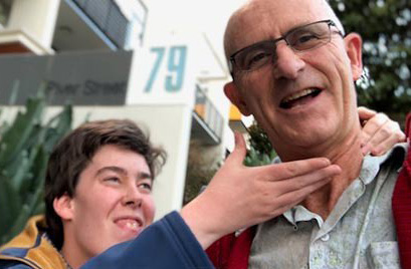Media Guide
Prader-Willi syndrome (PWS) mainly attracts attention from the media and the public because of its association with obesity and overeating. It is very common to see headlines such as “My child is eating himself to death”.
While these headlines may grab attention, parents and people with PWS know that there is far more to the syndrome than this, and are often upset by such sensationalism. Many families are under incredible stress and feel that the general public would be far more sympathetic if they knew the whole story, rather than part of it. If you wish to speak to us directly please get in touch.
Communicating the facts
What is Prader-Willi syndrome?
Prader-Willi syndrome is a complex genetic disorder that is usually not hereditary. It can occur in any family and, in most cases, only one child will have it. It is not an illness or a disease. It is typically characterised by low muscle tone, short stature (when not treated with growth hormone), incomplete sexual development, disturbed sleep patterns, cognitive disabilities, behavioural problems, and a chronic feeling of insatiable hunger that can lead to excessive eating and life-threatening obesity.
How common is Prader-Willi syndrome?
Different researchers have estimated that between 1 in 12,000 and 1 in 22,000 people is born with Prader-Willi syndrome. Prader-Willi syndrome is found in people of both sexes and in all races.
Why is it called Prader-Willi syndrome?
Prader-Willi syndrome is named after two of the Swiss doctors who first described it in 1956, Andrea Prader and Heinrich Willi.
Frequently asked questions
How and why does Prader-Willi syndrome occur?
In each cell in our body there are 46 chromosomes. The DNA in our chromosomes determines how we develop. Most cases of Prader-Willi syndrome are attributed to a spontaneous genetic error that occurs at or near the time of conception. The occurrence of Prader-Willi syndrome is due to the absence of several genes on one of an individual’s two chromosome 15s – the one normally contributed by the father. In the majority of cases, there is a deletion – the critical genes are somehow lost from the chromosome.
In some of the remaining cases, the entire chromosome from the father is missing and there are instead two chromosome 15s from the mother (uniparental disomy). In a very small percentage of cases (2 percent or less), a genetic mutation that does not affect the parent is passed on to the child, and in these families, more than one child may be affected. It is neither parent’s fault when a child is born with Prader-Willi syndrome.
Although it is known how Prader-Willi syndrome occurs, it is not yet understood why it occurs. In rare cases a Prader-Willi syndrome-like disorder can also be acquired after birth if the hypothalamus in the brain becomes damaged through injury or surgery.
Is everyone with Prader-Willi syndrome the same?
Like everyone else, people with Prader-Willi syndrome are first and foremost individuals. Not everyone with Prader-Willi syndrome will be affected by all the characteristics associated with Prader-Willi syndrome, and the extent to which different people will be affected by different characteristics can vary significantly.
Reporting PWS in the media
How to refer to Prader-Willi syndrome and the people affected by it
The correct terminology is capital “P” for Prader, capital “W” for Willi and small “s” for syndrome. Prader and Willi are joined by a hyphen, e.g. “Mary has Prader-Willi syndrome.”
It is often abbreviated to “PWS”.
Avoid oversimplifications, such as describing PWS only in terms of hyperphagia and/or obesity. Prader-Willi syndrome is a complex genetic disorder not reducible to a single characteristic.
What is Prader-Willi syndrome?
Prader-Willi syndrome is a complex genetic disorder that is usually not hereditary. It can occur in any family and, in most cases, only one child will have it. It is not an illness or a disease. It is typically characterised by low muscle tone, short stature (when not treated with growth hormone), incomplete sexual development, disturbed sleep patterns, cognitive disabilities, behavioural problems, and a chronic feeling of insatiable hunger that can lead to excessive eating and life-threatening obesity.
Reporting PWS in the media
How to refer to Prader-Willi syndrome and the people affected by it
The correct terminology is capital “P” for Prader, capital “W” for Willi and small “s” for syndrome. Prader and Willi are joined by a hyphen, e.g. “Mary has Prader-Willi syndrome.”
It is often abbreviated to “PWS”.
Avoid oversimplifications, such as describing PWS only in terms of hyperphagia and/or obesity. Prader-Willi syndrome is a complex genetic disorder not reducible to a single characteristic.
Accepted phrases and terminology
- A person/child/baby with Prader-Willi syndrome or who has Prader-Willi syndrome
- People who have Prader-Willi syndrome are only patients while they are in hospital or receiving medical treatment. The rest of the time just call them people.
- Has Prader-Willi syndrome
- Person without Prader-Willi syndrome
Terms to avoid
- Prader-Willi person/child/baby
- Suffers from or is a victim of Prader-Willi syndrome
- Patients
- Disease/illness/handicap/special
- Normal person
Involving people with PWS
When reporting on Prader-Willi syndrome try to give a voice to people with Prader-Willi syndrome, even if this is difficult. To focus exclusively on parents or carers implies that people with Prader-Willi syndrome can’t think or speak for themselves. Also check that the person is willing for you to report that s/he has Prader-Willi syndrome.
Add details of a reputable source of information
- The International Prader-Willi Syndrome Organisation provides information including a list of national associations and country contacts: www.ipwso.org
- Large national associations include PWSA (USA) and PWSA (UK).
- For information about Prader-Willi syndrome in French see Prader-Willi France.
- For information about Prader-Willi syndrome in Spanish see Asociación Española Síndrome de Prader Willi.
< Back to News & Events
International Community
IPWSO was established so that PWS associations, families, clinicians and caregivers around the world could exchange information and support and have a united global voice under one umbrella.
Information for Medical Professionals
The latest medical and scientific research and information, plus guides into common medical issues affecting people with PWS.



